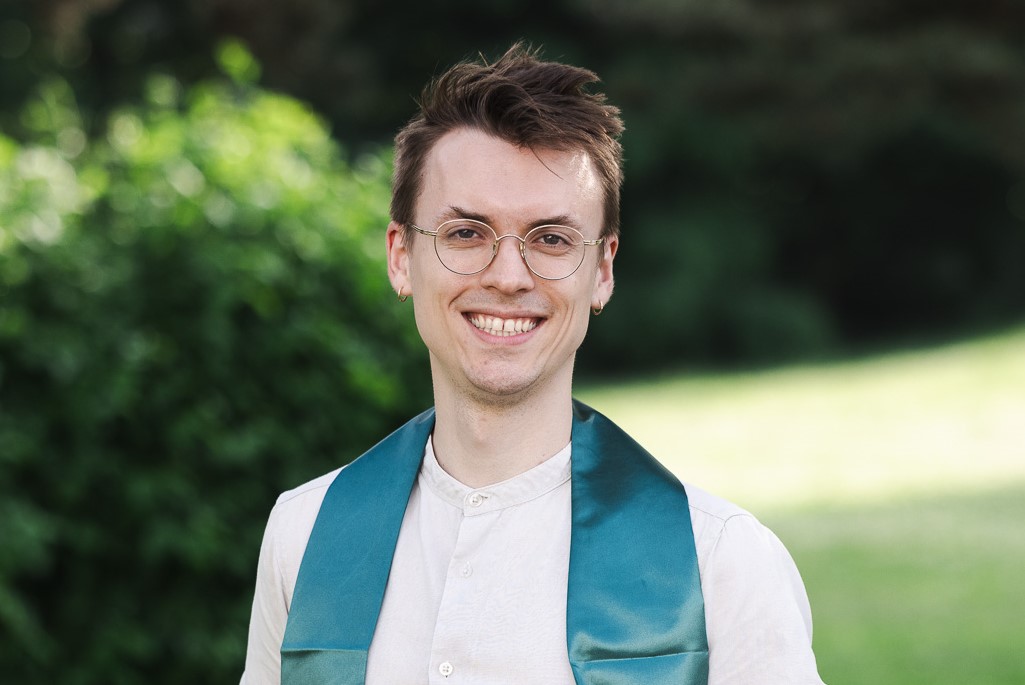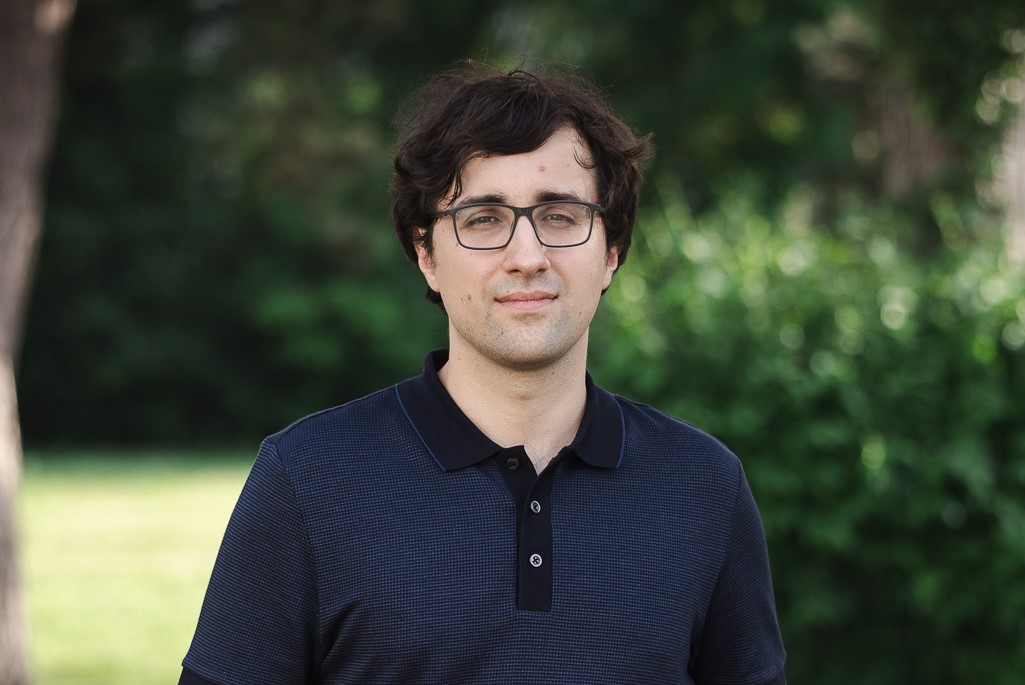
UNIVERSITY OF ZURICH, ZURICH, SWITZERLAND
Morris Brooks graduated from the ISTA Grad School in 2023. During his time at the Seiringer group, he studied quantum systems involving large numbers of particles and their collective behavior. In 2021, he was the lead author on a paper on a new way of creating anyons, strange quasi particles, using rotating molecules, possibly aiding efforts to constructing a new kind of quantum computer. He was awarded the Outstanding PhD Thesis Award for his work at ISTA. He has since moved to the University of Zurich to continue his academic career.
Watch the corresponding video on YouTube
My name is Morris Brooks. I do not have an up-to-date business card, but I would describe myself as a mathematician working in research.
When I finished high school, it was pretty clear that I wanted to have a career in academics. But at that time I didn’t know if I wanted to do mathematics or physics. I decided for mathematics, which I do not regret. But it was really at ISTA where I could finally unify my passion for those two subjects.
I do aspire a career in academia. Especially, I want to use the things which I’ve learned here at ISTA and propagate them further. I think I won’t be happy outside much.
It was here at the Institute where I figured out what kind of research I want to do, and I cannot overestimate the impact it had on my career.
For me, the most ordinary days here have been the most treasured memories. I go in the morning to the duck pond and take my breakfast and maybe go to lunch with the whole group afterward. And, you know, if I get stuck in my work in the afternoon, maybe I go for a walk in the hills of Klosterneuburg. I found that very relaxing.
I think I have two good advices. The first thing is: I think what sets ISTA apart from other institutes is the interdisciplinary aspect. It is really draining to work outside your own field or outside your comfort zone. But I think it is very rewarding. And the second thing is: When you get stuck in your work, I think you should just stop what you’re doing and go outside. The nature here is beautiful. You should really enjoy it.

GOOGLE RESEARCH, ZURICH, SWITZERLAND
What the future can hold for excellent PhD students after graduating from ISTA can be seen by the example of Alexander Kolesnikov. During his PhD at ISTA, Kolesnikov focused on the design of computer systems that can automatically learn to parse and understand visual information, like images or videos.
He received his doctorate in 2018, is currently working at Google Research in Zurich, and has now received the 2022 ISTA Alumni Award, given to excellent former researchers of the Institute.
Watch the corresponding video on YouTube
My name is Alexander Kolsenikov. Actually, I don’t have a business card. But if I happen to make one, it will say: Computer Vision and Machine Learning Researcher at Google Deepmind.
It is actually very similar to the typical postdoc position. So, I happen to come up with some new research projects and then execute these projects together with my colleagues, submit the research to conferences, travel there, and I also happen to participate in internal projects inside Google as well.
I did my education in Moscow before coming here. I was mostly focused in applied mathematics and computer science. And when coming here, I decided to specialize in machine learning and computer vision.
ISTA played a very important role in my career. When I first came here, I had some fundamental education, but I didn’t have many research skills. Most of the research skills that I have now, I actually acquired them at IST Austria.
I have a lot of nice memories of doing sports together with my ISTA colleagues. I used to regularly play football, frisbee, do climbing, or even some competitive programming.
Maybe the first advice is to prioritize mental and physical health. Sometimes life in academia can be quite stressful and it’s very easy to get carried away and forget to take care of yourself. The second advice I would give is just to talk a lot with people around you, with your colleagues, and also with external collaborators. It can be very helpful in hard to predict ways. Maybe you get a new research idea or get unstuck. Or it may help you to find a new job after you decide for example to stop working in academia or finish your PhD. The third advice is to be very critical of the advices you get. I think everybody’s situation is very different, and no matter from who you hear the advice: be very critical and aware that it may not apply to your situation.